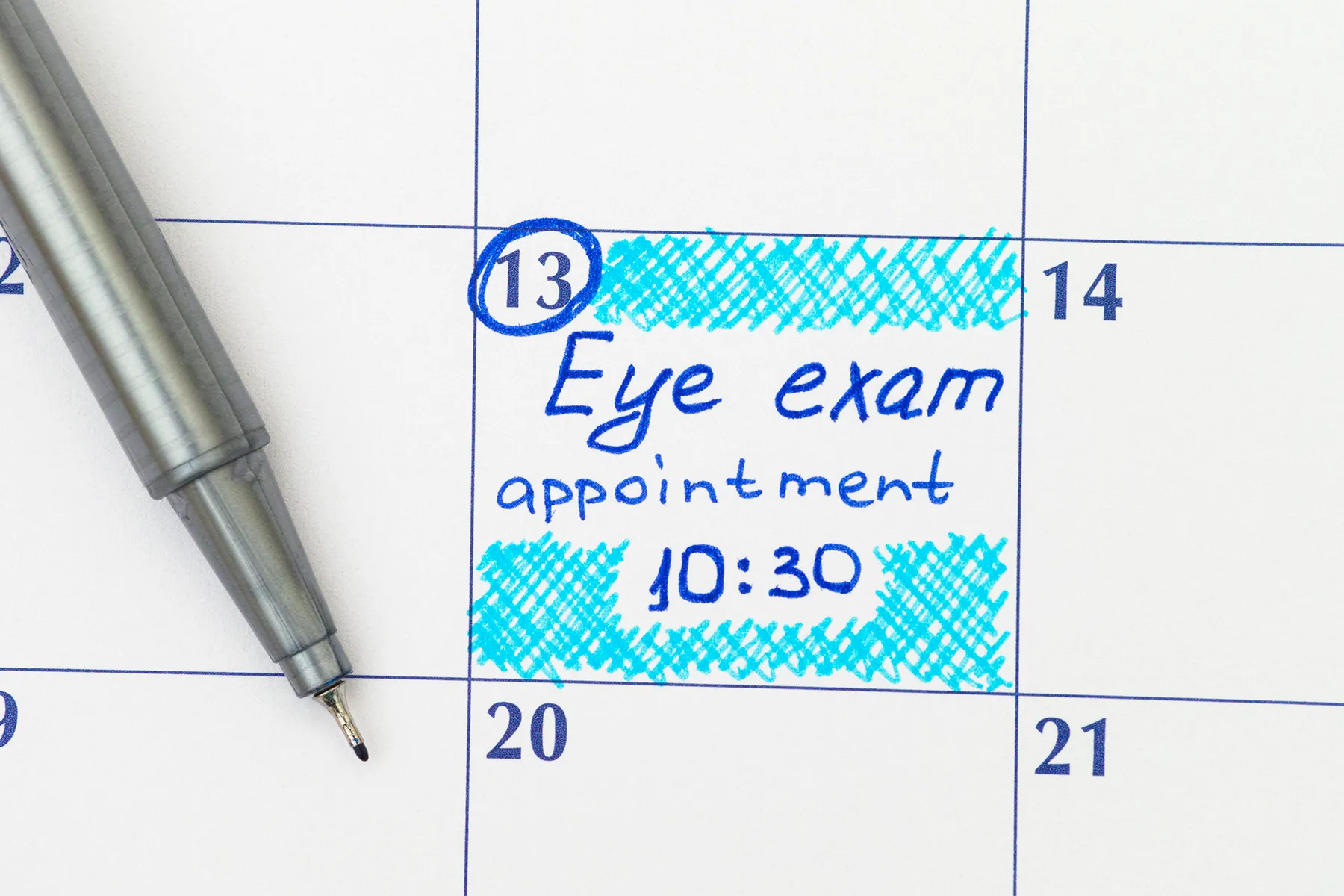The Eyes Have It: Don’t Skip Your Annual Eye Exam

You’ve probably heard the expression, “the eyes are the window to the soul.” That’s not all they allow us to see.
Your eyes can tell doctors how stressed you are, if you’re not getting enough sleep, or if you got too much sun. While some symptoms can point to a simple problem — like needing to wear prescription glasses — others point to more severe health concerns like diabetes, multiple sclerosis, and even Alzheimer’s disease.
Eye exam: the overlooked annual appointment
“People don’t think about getting their eyes checked as regularly as their annual physical. Once a year is a good place to start,” says Delia Cabrera DeBuc, Ph.D., a researcher at Bascom Palmer Eye Institute, part of the University of Miami Health System.
If you have a family history of certain diseases like cancer, Alzheimer’s, or diabetes, make your annual eye exam a priority. The eyes can be an indicator of how healthy your brain is. Ophthalmologists are looking for changes in vision, bleeding in the retina and damaged blood vessels — anything that can tell them if something more serious is happening.
For those patients diagnosed with diabetes, your primary care physician will likely refer you to an eye specialist every year to see if retinal degeneration is progressing. If left unchecked, degeneration could lead to blindness.
The hidden eye problem
But what if you don’t know if you have a family history or you don’t know if you what you’re experiencing is more than just sight-related? You don’t, which is why it’s essential to find out if you are healthy.
When I see patients, most tell me they think that they need better glasses. They’re not thinking that it could be something else. While a patient might have 20/20 vision, degeneration could be developing in the retina.
Dr. Cabrera DeBuc
A recent study published in a journal of the American Academy of Ophthalmology revealed that a simple eye scan could detect early signs of Alzheimer’s disease. The researchers found that a new imaging method could look at blood vessels found in the back of eyes to discover any irregularities. These abnormalities, along with a thinning of the retinal layer, are two physical signs that point to disease detection. The study’s results are promising, especially since it’s challenging to diagnose Alzheimer’s early on.
Dr. Cabrera DeBuc is taking this research a step further and will publish the latest results of her study which suggests that multivariate eye biomarkers reveal distinctive eye-brain signatures of cognitive impairment that might be associated with the onset and progression of cognitive decline. The research is under review.
Symptoms that may signal other health conditions
Many researchers are looking to the eyes to find other connections to more serious diseases.
Blurry vision
This could be as simple as needing a prescription, or it could mean you have diabetes and it’s not under control. Blurry vision occurs when your blood sugar levels remain elevated for an extended period. Your eye pulls water from your body, causing swelling and the blurry effect. Once your levels return to normal, the blurry vision will dissipate.
A noticeable ring around your eye
If you’re under 40, this could point to a dangerously high cholesterol level. If that’s the case, your eye doctor will look for fat deposits during the exam and could refer you to a primary care physician or a cardiologist.
Twitchy eyes
In most cases, twitches in the eye are nothing to worry about and often resolve themselves. Sometimes twitching occurs when a patient is stressed, too caffeinated, or not well-rested. Sometimes it happens if you drink or smoke. But in rare cases, eye twitching can be symptomatic of multiple sclerosis or Parkinson’s.
Night blindness
This usually relates to the need to wear glasses but may be a sign of cataracts. Alternatively, it could be a Vitamin A deficiency. If that is the case, eat more sweet potatoes, spinach, carrots.
Discoloration
Yellow discoloration in your eyes, in particular, can appear in individuals with chronic alcohol or liver problems. It can also signal a bad diet, infection, jaundice or cancer.
Symptoms or no symptoms, it is essential to understand that eye health and your overall health are uniquely connected. If everyone treated their eye check-ups like they did their annual physicals, we might identify diseases and begin treatment more quickly.
Cara McBroom is a contributing writer for UMiami Health News.
Tags: Alzheimer's Disease, Bascom Palmer Eye Institute, Delia Cabrera DeBuc, Diabetes, eye exams, eye symptoms, multiple sclerosis, vision care
